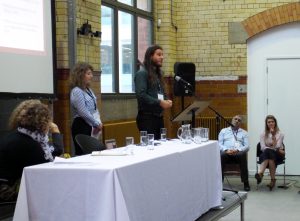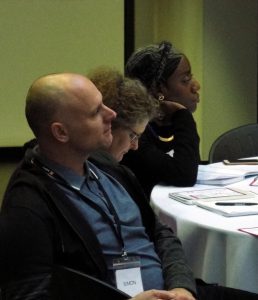Last Thursday’s Unsupported Temporary Accommodation Conference at the People’s Museum in Manchester kicked off with Andy Burnham declaring homelessness as ‘a humanitarian crisis’ which needed a ‘whole society response’. The ‘hidden homeless’, often marginalized and stigmatized with sometimes complex and multiple needs, are right now living in sub-standard accommodation.

In fact, 43% of all private unsupported accommodation is below standard. Government stats put the number of those living in UTA’s at around 6,000. The real numbers paint a rather different picture – around 66,000 people. But rather than simply pointing the finger at private landlords, the case was stated for further research and evidence gathering – making the invisible visible and exposing the real hidden costs.
Hardly surprisingly, evidence points out the fact that while people continue to stay in sub-standard properties, mental and physical health deteriorates and any underlying dependency issues are compounded. People get worse, not better in these conditions – it’s not rocket science.

Local landlord Jo, who runs a private local UTA and delivers a totally unfunded support service for her guests, explains that yes, it IS a business like any other business. But she argues for a funding scheme that rewards responsible landlords and celebrates best practice, adding that ‘not only does kindness cost nothing, it also saves money‘.

This conference, attended by people from care organisations, councils and those with experience of the ‘sharp end’ outlined not only the very real problems, but the very real need for everyone to start talking. Together. Landlords, tenants, councils, support workers, care agencies. With the proposed National Temporary Accommodation Boards Network, the hidden voices of the hidden homeless can start to be heard. And maybe the government will listen.